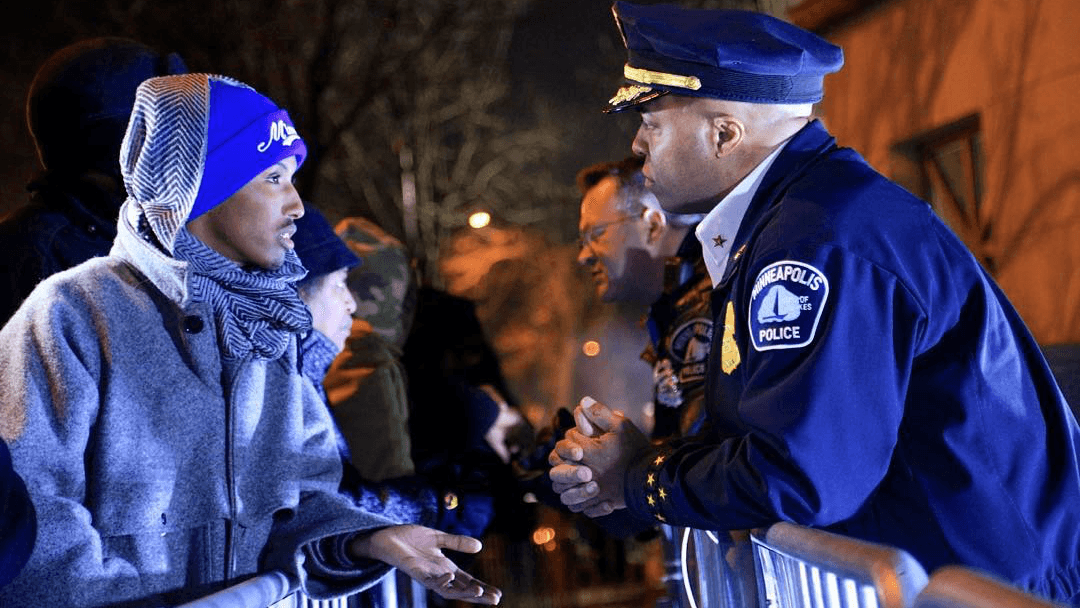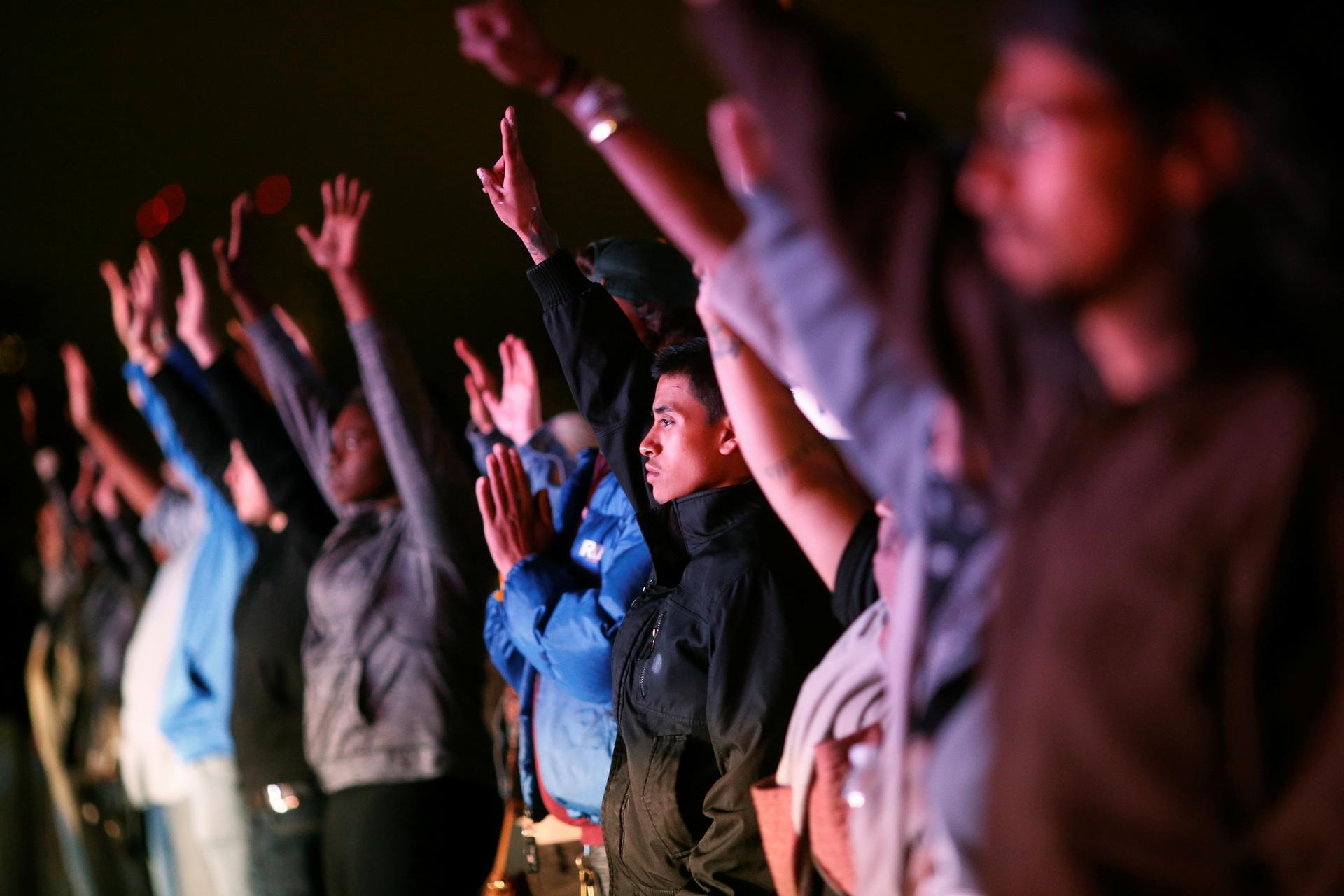Demonstrators raise their hands toward a line of police officers on I-880 during a protest in Oakland, California, against the police shootings in Louisiana and Minnesota that lead to two deaths.
Julia Nekessa Opoti's radio show, called "Reflections of New Minnesotans," focuses on stories of immigrants.
In Minnesota, where she is based, there is a large Somali community as well as sizable populations of Hmong, Cambodians and Vietnamese.
Opoti says in the wake of the shootings in Louisiana, Minnesota and Dallas, she has been hearing from a lot of immigrants who say they are reliving traumatic memories.
She says that often, immigrants have too optimistic a view of the police in the US. For example, it's hard for some to understand how race and racism play out. Plus, a lot of these immigrants have fled persecution of some kind and moved to the US in hopes of coming to a safer place. The shootings, however, shatter that sense of safety.

"When they see someone like Philando Castile [who was killed by police in Minnesota], who is living the American dream that they imagined, it's hitting them that this could be me," Opoti explains.
Specifically, she adds, when they hear that Castile was pulled over several times before he was killed, it worries them a lot.
"One of the things that I keep hearing, especially from men of color, is how this is such a frequency for them, that they are often being pulled over," she says.
And so when they hear that a routine traffic stop could end in some one's death, it terrifies them.
Opoti, who was born in Kenya and moved to the US 19 years ago, says she hears about police brutality in Kenya as well. She says it's difficult for her to watch what's happening there as well as what's taking place here in the US.
"There is no reconciliation between the two, but I'm permanently reading one terror story after another," she says.
Our coverage reaches millions each week, but only a small fraction of listeners contribute to sustain our program. We still need 224 more people to donate $100 or $10/monthly to unlock our $67,000 match. Will you help us get there today?
